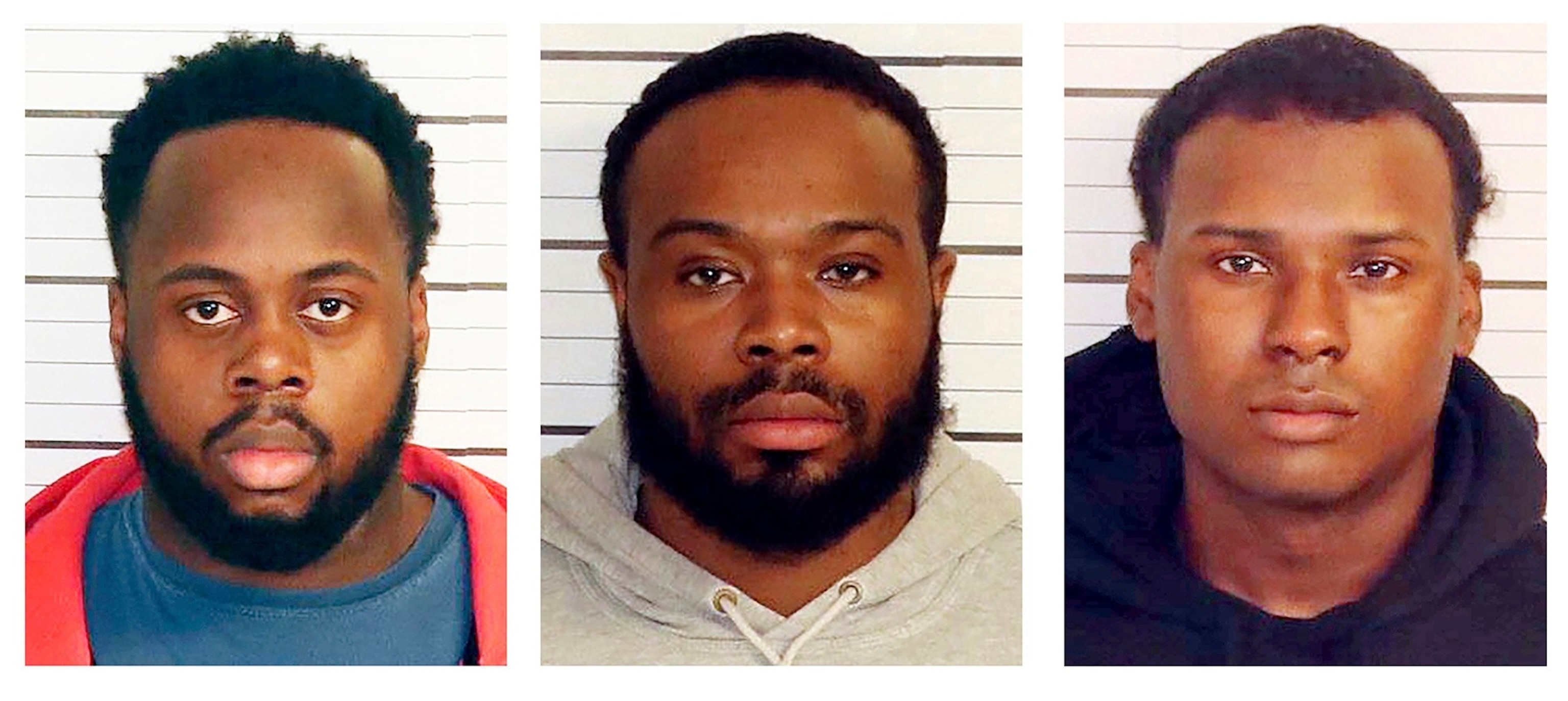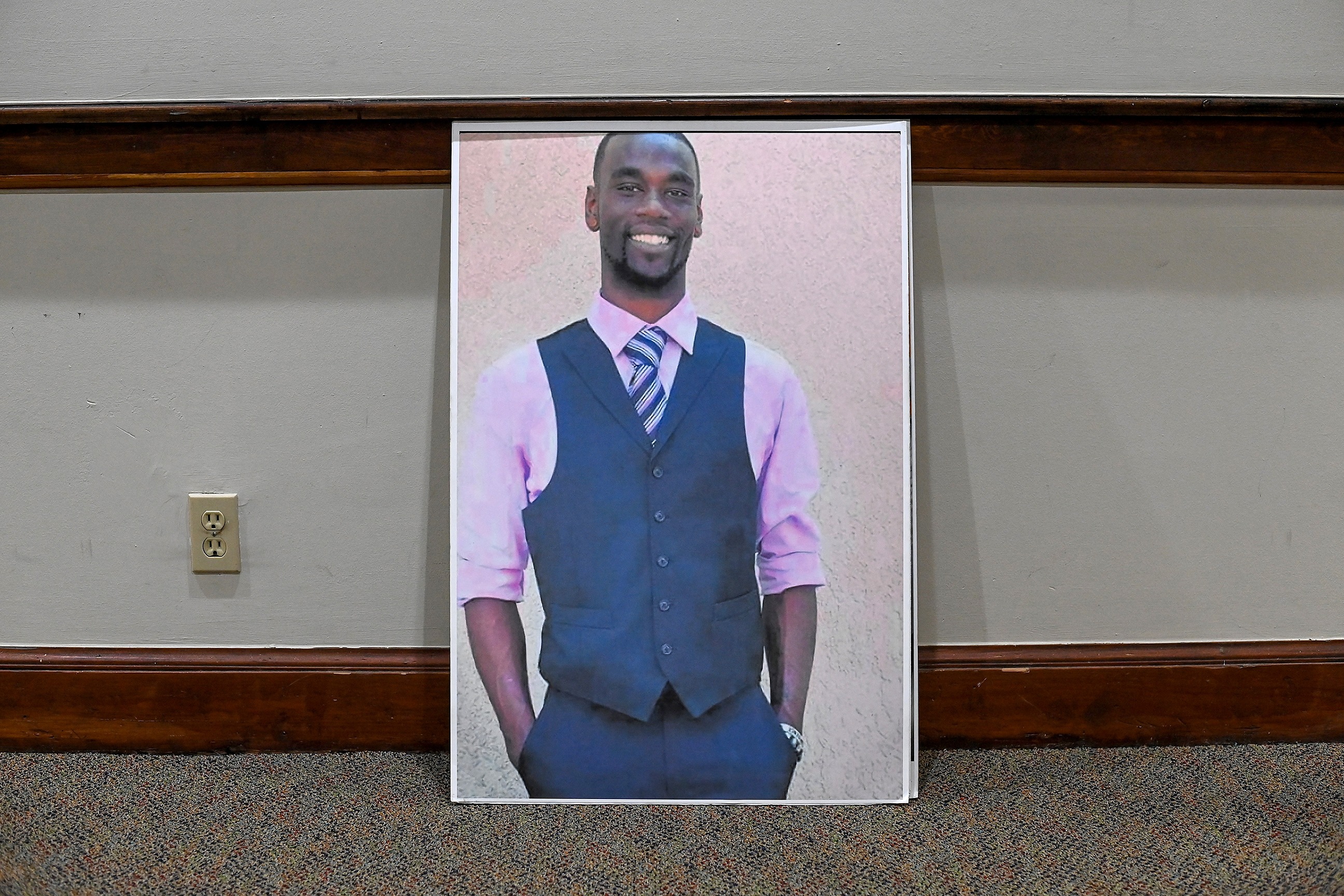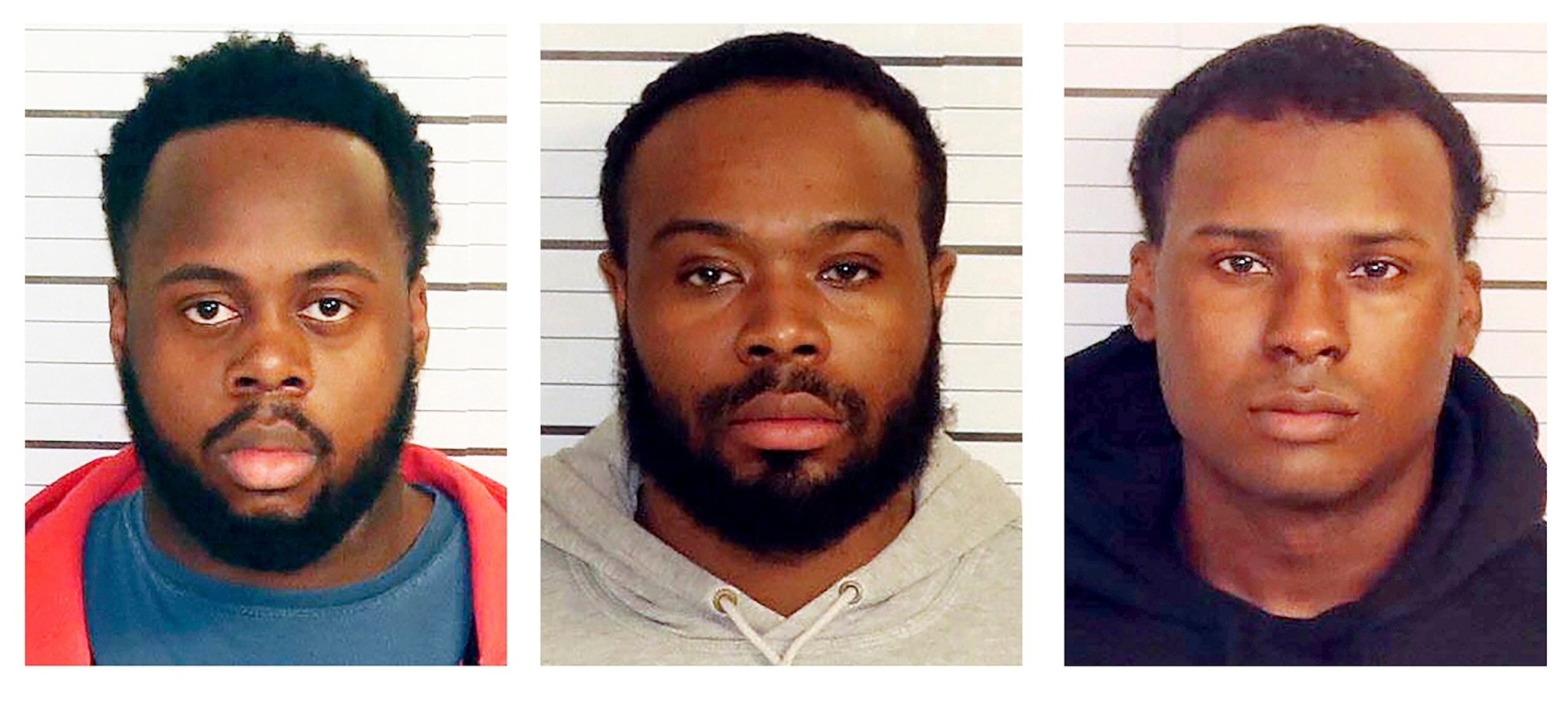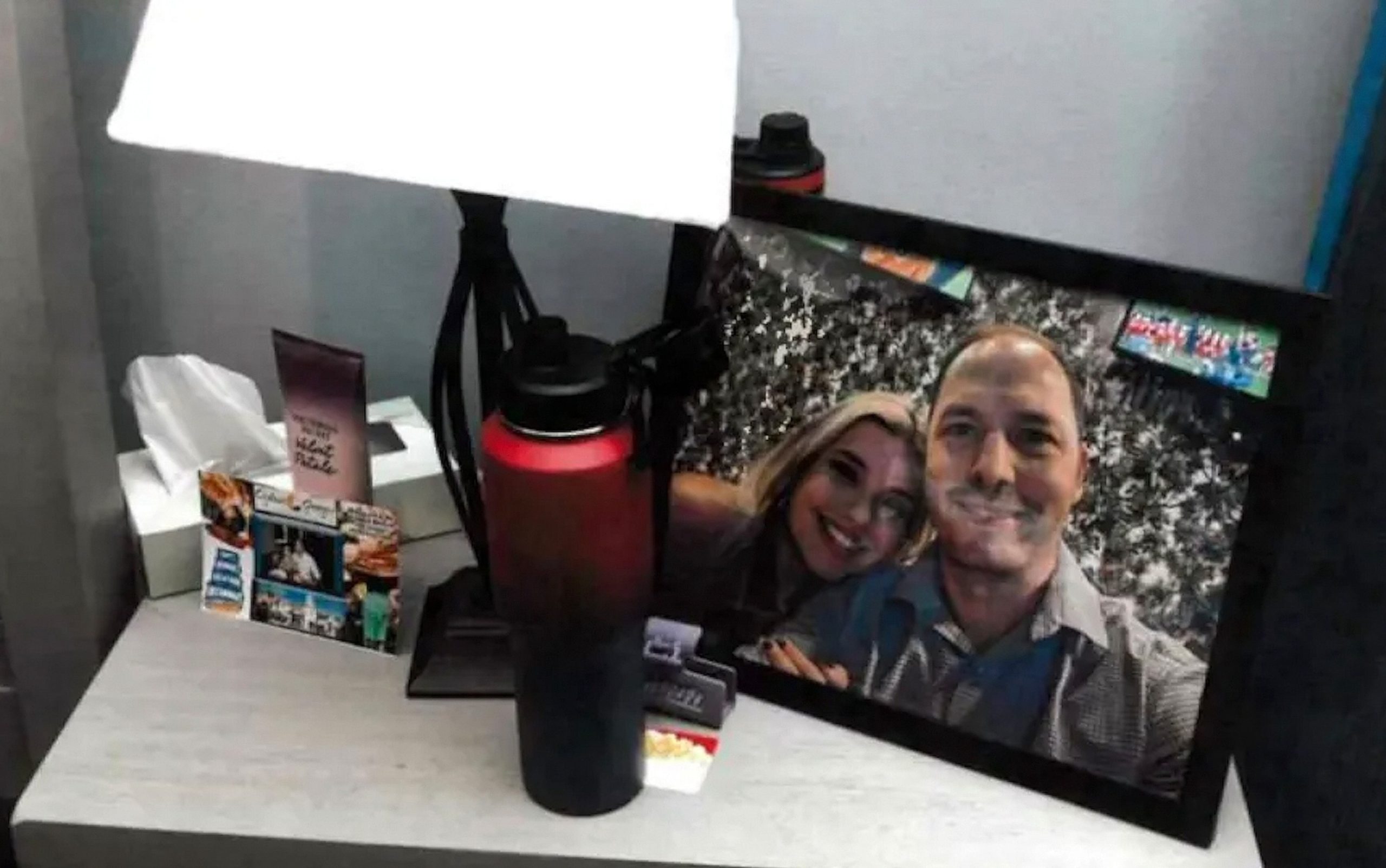The federal trial of three former Memphis police officers charged in connection with the 2023 beating death of Tyre Nichols continued Thursday, with prosecutors calling to the stand a Memphis Police Department lieutenant who had trained the defendants.
“If they don’t follow the policies, they could go to federal prison,” Second Lt. Larnce Wright responded when asked what he told officers could happen if they don’t follow department rules, according to WATN, the ABC affiliate in Memphis covering the case in the courtroom.
The former officers — Tadarrius Bean, Demetrius Haley and Justin Smith — were charged on Sept. 12, 2023, with violating Nichols’ civil rights through excessive use of force, unlawful assault, failing to intervene in the assault and failing to render medical aid – charges that carry a maximum penalty of life in prison, according to the U.S. Department of Justice. The officers have pleaded not guilty to all charges.
Wright’s comments came as surveillance footage of Nichols’ encounter with police was played for the first time in court, and included footage of Nichols being beaten. Wright, in commenting on the video, said there were several points where officers should have intervened and stopped their colleagues from using punches, kicks and a baton, according to WATN.
All three defendants sat stoically as attorney Kate Gilbert played video from Tyre Nichols arrest, according to WATN.
Nichols’ mother, RowVaughn Wells, and sister, Keyana Dixon, left the courtroom before the footage was played, according to WATN. Wells has previously said she had not seen the footage and never would see it.

This combo of booking images provided by the Shelby County, Tenn., Sheriff’s Office shows, from left, Tadarrius Bean, Demetrius Haley and Justin Smith.
Shelby County Sheriff’s Office via AP
Wright was shown videos from the night of Nichols stop with intermittent pauses, asking if the techniques being used by officers were in line with MPD policy, according to WATN. Wright said no, with conflicting orders and unwarranted levels of force that did not align with the continuum of force followed by MPD. That continuum of force tells officers to meet force at an equal level, according to WATN.
Wright also said that the scenario of the initial stop should have been a low risk traffic stop, according to WATN. Wright said during the initial stop, Nichols voicing that he was trying to do what was asked should have led officers to deescalate the situation.
Wright claimed officers were not following training for several reasons and described Nichols’ behavior as human nature, according to WATN.
On Wednesday, the prosecution called to the stand Rachael Love, a critical care nurse practitioner who treated Nichols at St. Francis Hospital, according to WATN. Love was asked what she saw the night Nichols came into the hospital.
“I was told the police beat the hell out of him,” Love said, according to WATN.
Love said Nichols had no pulse for 25 minutes and was on a ventilator when he arrived at the hospital in police custody after being beaten on Jan. 7, 2023, according to WATN.
She claimed it was “a bigger assault than what I thought” because of the excess swelling and kidney failure that led Nichols to be treated in the intensive care unit, according to WATN.
When Wells arrived at the hospital, Love said Wells took a few steps into the room where he was being kept, stopped, screamed and collapsed, according WATN.
Martin Zummach, Smith’s attorney, said that his client will testify at the trial, during his opening statement Wednesday, according to WATN.

A photo of Tyre Nichols is displayed outside the sanctuary during church service at Mt. Olive Cathedral CME Church on January 29, 2023 in Memphis, Tennessee.
Joshua Lott/The Washington Post via Getty Images
“We have nothing to prove,” Zummach said, according to WATN. “He wants to tell his story.”
Zummach claimed that Smith was the only person to ask for medical personnel to be dispatched to aid Nichols, according to WATN. Paramedics allegedly didn’t have an oxygen bag with them, according to Zummach.
“I’ll let you look at the type of medical care he got from MFD (Memphis Fire Department),” Zummach said, according to WATN.
Desmond Mills Jr. and Emmitt Martin III, the two additional officers who were also charged in this case, have pleaded guilty to some of the federal charges.
Martin pleaded guilty to excessive force and failure to intervene, as well as conspiracy to witness tamper, according to court records. The other two charges will be dropped at sentencing, which has been scheduled for Dec. 5, according to the court records.
Mills pleaded guilty to two of the four counts in the indictment — excessive force and failing to intervene, as well as conspiring to cover up his use of unlawful force, according to the DOJ. The government said it will recommend a maximum penalty of 15 years in prison, based on the terms of Mills’ plea agreement.
The prosecution told ABC News in a statement Thursday that they will not have any statements until after the trial. The defense attorneys did not immediately respond to ABC News’ request for comment.
Nichols, 29, died on Jan. 10, 2023 – three days after a traffic stop captured in body camera footage and surveillance footage, which allegedly shows officers violently striking Nichols repeatedly and walking around, talking to each other as Nichols was injured and sitting on the ground. He was also pepper-sprayed and tased during the incident. The beating triggered protests and calls for police reform.
Police said Nichols was pulled over for reckless driving, though Memphis Police Chief Cerelyn Davis said she has been unable to substantiate that.
Body camera footage shows Nichols getting away from the officers after the initial stop, but he was apprehended minutes later by the officers. He then sustained multiple punches, kicks and hits from a baton from the officers.
Nichols was transferred to the hospital in critical condition where he later died. The medical examiner’s official autopsy report for Nichols showed he “died of brain injuries from blunt force trauma,” the district attorney’s office told Nichols’ family in May 2023.
While Nichols’ mother has said that first responders told her he was drunk and high, the autopsy report shows that his blood alcohol level was .049, the DA’s office said. The district attorney’s office told the family that was “well less than the legal limit to drive.”
The five former officers charged in this case were all members of the Memphis Police Department SCORPION unit – a crime suppression unit that has since been disbanded after Nichols’ death.
The five officers charged in connection to Nichols’ death were all fired for violating the policies of the Memphis Police Department.
All five former officers also face state felony charges, including second-degree murder, aggravated assault and aggravated kidnapping, in connection with Nichols’ death. They pleaded not guilty.
ABC News’ Kiara Alfonseca and Sabina Ghebremedhin contributed to this report.
In a recent development in the Tyre Nichols case, a lieutenant testified that the ex-officers involved in the incident violated police policy. The case, which has garnered national attention, revolves around the shooting of Tyre Nichols, a young African American man, by police officers during a routine traffic stop.
During the trial, Lieutenant John Smith took the stand and provided damning testimony against the former officers. He stated that their actions on the night of the shooting were in direct violation of department policies and procedures. According to Smith, the officers failed to properly assess the situation, use de-escalation techniques, and follow proper use of force protocols.
The lieutenant’s testimony sheds light on the systemic issues within law enforcement agencies when it comes to handling situations involving people of color. It highlights the need for better training and accountability measures to prevent similar incidents from occurring in the future.
The Nichols case has sparked outrage and calls for justice from community members and activists who believe that the officers involved should be held accountable for their actions. The lieutenant’s testimony further strengthens their case and provides evidence that the officers acted recklessly and without regard for human life.
As the trial continues, all eyes are on the justice system to see if the former officers will be held accountable for their actions. The outcome of this case will not only impact the individuals involved but also set a precedent for how law enforcement officers are held accountable for their actions in similar situations.
Overall, the lieutenant’s testimony in the Tyre Nichols case serves as a reminder of the importance of upholding police policies and procedures to ensure the safety and well-being of all individuals, regardless of their race or background. It is crucial that law enforcement agencies take steps to address systemic issues within their departments to prevent future tragedies from occurring.



